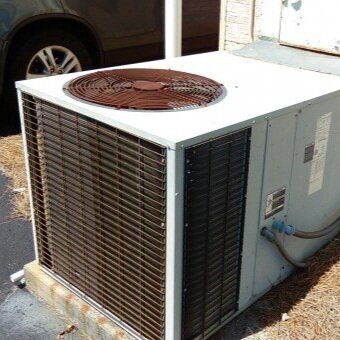All You Need to Know About HEPA Filters for Your HVAC
Indoor air quality has become a grave concern for homeowners. Constant exposure to airborne contaminants can severely affect one's health. The HVAC system's air filters continually recycle the home's air to get rid of various pollutants. They ensure that we breathe clean, fresh air.
The type of air filter used in the HVAC system and how frequently it is changed significantly influence its performance and the indoor air quality. HEPA filters are popular, highly-effective, and recommended by most professional HVAC contractors and the U.S. Department of Health. In this article, we will discuss everything a homeowner needs to know about HEPA filters.
What is a HEPA filter?
High Efficiency Particulate Air filters, or HEPA filters, are a specific type of mechanical filter tested and certified to remove 99.97% of allergens and airborne irritants up to 0.3 microns in size. They filter dust, dirt, mold, pet dander, smog, pollen, most viruses and bacteria, and other large and microscopic contaminants from the air.
A HEPA filter is a dense mat of thousands of specifically designed and randomly aligned thin glass fibers to capture both small and large particles. When the air passes through this mesh-like web of fibers, it traps contaminants in four different ways—impaction, diffusion, interception, and sieving. Using HEPA filters in the HVAC system has significantly reduced asthma and allergy symptoms in patients.
Areas of use
These filters have long been used in hospitals, clinics, and nuclear facilities; they were first developed in the early 1940s to protect scientists from airborne radioactive contaminants. HEPA filters are now widely used in several settings, including aerospace, the technology industry, and the pharmaceutical industry. They make the best choice for any residential or commercial building with very high air quality requirements.
Is a HEPA filter the right choice for your home?
HEPA filters make a perfect choice for households with pets, children, frequent smokers, wall-to-wall carpeting, a lot of nearby traffic, or inhabitants with allergies or asthma. However, there are several other factors to consider before getting a HEPA filter. Here are the reasons for and against HEPA filters:
Benefits
MERV rating of over 16; a higher MERV rating indicates high-quality filtration
Ability to filter smaller particles
An ideal solution for people who suffer from respiratory problems or seasonal allergies
Improve indoor air quality
Designed to meet specific standards that ensure quality and reliability
Disadvantages
They can restrict the airflow of the HVAC system
Not efficient in removing every particle from the air
Expensive
Not all HVAC systems can handle the level of filtration provided by HEPA filters
Need frequent replacement
Possibility of mold and bacteria growth on the filter
Regularly change HEPA filters to prevent early wearing out of the HVAC system and keep contaminants from accumulating in the ductwork.
For general households, investing in a pricey HEPA filter may not be worth it. A homeowner can opt for any filter with a high MERV rating. An HVAC contractor is the right person to advise on the right air filtration system for the home.
Above and Beyond Air Conditioning & Heating offers commercial air conditioning and heating solutions to San Antonio, TX, business owners to maintain an ideal indoor environment. We also have expertise in providing duct installation and sealing, thermostats, and indoor air quality solutions. Call us at (210)794-9895.


